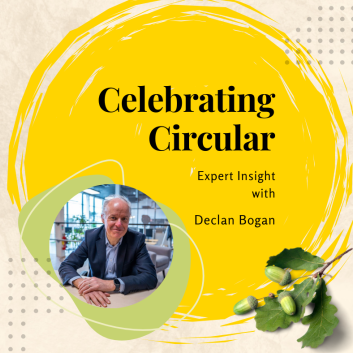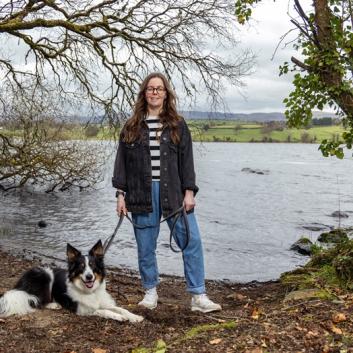“There is such potential for startups to solve some of the world’s biggest problems”
"
I’m probably one of the few people at Dogpatch who hasn’t worked either at or with a startup previously. My academic background is in international sustainable development, which means that up until recently, my professional experience was primarily within the public sector.
I’ve worked for countless NGOs, non-profits, and government and UN agencies around the world. A lot of people may think that someone working in the non-profit sector versus the startup world is like night and day, but there are a lot of similarities in the personality type that succeeds in both industries.
For instance, there’s a huge amount of passion driving the company or organisation forward, paired with a hugely disproportionate lack of money.
These days at Dogpatch, I can call upon my experience in the development sector to work in similar areas, such as emerging markets and ‘reverse innovation’.
I think, eventually, the non-profit sector will play less of a role in international development, and the problems that need solving will be addressed by startups.
The potential behind using a startup as the solution means the business model can be scaled to other countries facing the same issues and have the money to deal with it.

The impact that startups can and will have on the global markets and communities is an unknown quality with huge potential, and I’m looking forward to playing a part in the change here at Dogpatch.
It has been a driver for me to have as wide of an impact as I possibly could because I knew there were so many people out there who wouldn’t have the same opportunities that I have been afforded.
I was lucky enough to travel a lot during my childhood due to having such an international family, from the Netherlands to Brazil and Hawaii. I saw firsthand how different people lived around the world, and it impacted the kind of person I wanted to be, the subjects I studied, and the jobs I took.
I wanted to take advantage of that and chose a field where I would directly put back the work into communities that needed it most.
Sustainability has always been at the core of international aid and development, but it’s only recently become the hot topic to focus on in the tech world.
Now that I work with startups and in tech, I see my job as spreading the understanding that sustainability is way more than just the “green stuff”.
In an industrialised and developed economy like Ireland, it’s easy to focus solely on decarbonisation and net zero goals. However, social issues must not fall to the side.
It is our duty as professionals in the tech space, as individuals with power and resources, to have that positive impact.
Before working at Dogpatch, I was with the United Nations Global Compact (UNGC), the UN agency working with the private sector, specifically on corporate sustainability.
When I started looking for a job in Ireland, I learned Dogpatch was about to launch a sustainability initiative, the 2050 Accelerator. This was a match made in heaven since I had been running global sustainability accelerators with the UN for the past couple of years.
I started as a programme manager, and that role evolved over the last year into my recent promotion to Head of Sustainability and Innovation Programmes.
Dogpatch has never had a Head of Sustainability before, but it became apparent that this type of role was needed as our organisation started to play an even bigger role in the space.
Each one of our programmes has a sustainability aspect to it, as our corporate clients all have an overarching sustainability strategy for which they will be held accountable.
I hope that in the future, my role won’t be needed anymore. I envision sustainability becoming so integrated into the daily operations, programmes, and strategy of our company that there doesn’t need to be one single source of truth or expertise in that area.
The 2050 Accelerator is one of the most exciting programmes I’ve ever worked on, and it’s been extremely rewarding to welcome the positive reactions since it launched last spring.
The idea behind this program is that we can have a huge impact on global sustainability goals by accelerating the adoption of new technologies from startups around the world.

We want to make Ireland a testbed for sustainability innovation by recruiting global startup talent to work with Irish corporate partners.
By pairing them together, we’re enabling corporates to trial new innovations while startups find a new route to market via new partnerships.
Operating alone, startups may struggle with finding the resources, time and customers to validate and improve their technology.
The 2050 Accelerator facilitates this, and the demand for this type of programme is super high.
What sets the 2050 Accelerator apart from other sustainability programmes out there is the focus on business development for startups.
Through the accelerator, we offer startups the priceless opportunity of partnering up with a corporation to develop paid pilots that will validate their tech.
By focusing on ensuring we can create pilot projects, we are making sure we have a real-life and measurable impact during the accelerator.
For example, BladeBridge, a startup that repurposes wind turbine blades into sustainable infrastructure, began working with ESB through the 2050 Accelerator.
Through the programme, they developed an e-mobility hub to charge and store ESB’s expansive network of e-bikes.
By utilising decommissioned wind turbine blades instead of virgin steel, they support vital key objectives aligned with ESB’s Net Zero goals, such as decarbonisation, the circular economy, and empowering customers to live more sustainably.

Collaborating with ESB in the 2050 Accelerator also means that we are connecting startups who need access to wind farms, telecommunication poles, e-mobility hubs, and more for their pilots. What Ireland lacks in geographical size, it makes up for in its connectedness.
That is something that Dogpatch has tapped into since its inception, working to create the most connected tech ecosystem in Ireland (and beyond!).
That connectedness is something that will become increasingly important in our efforts to tackle sustainability issues that plague all industries, markets, and communities.
Our response to climate change will have to be quick, efficient, and extremely risky, and these are all characteristics that startups and entrepreneurs embody every day.
Hearing about the most recent political conflicts, natural disasters, or social justice issues in the news can negatively affect the newest generation of business leaders.
The relentless grit and ambition of an entrepreneur are why there is such potential for startups to solve some of the world’s biggest problems.
We had a minister come in and speak at one of our sustainability events and told the audience that with every new policy and regulation his department introduced, that was an opportunity for an entrepreneur to create a new startup.
This is the type of thinking that will propel Ireland forward as a testbed for sustainability innovation, with Dogpatch creating those synergies between government, industry, and startups to get us there.
















